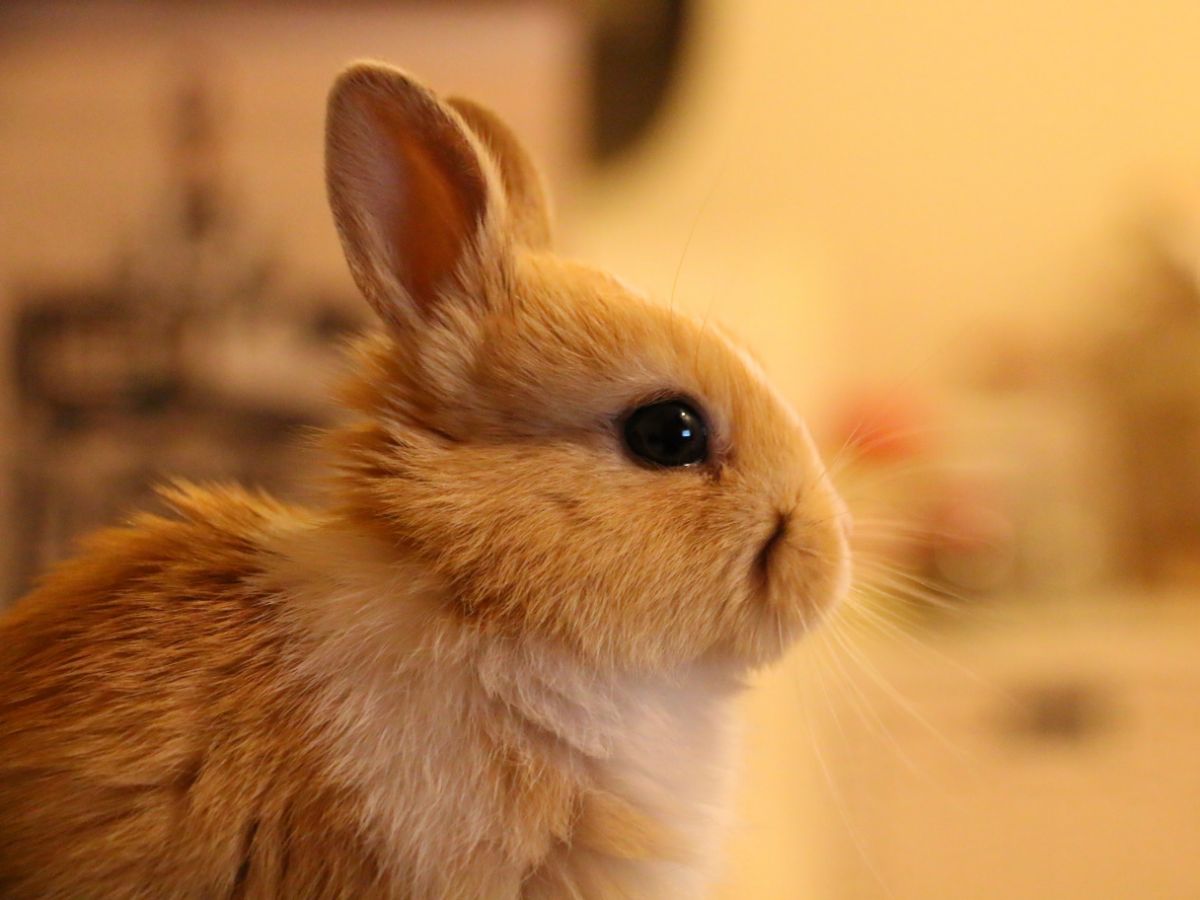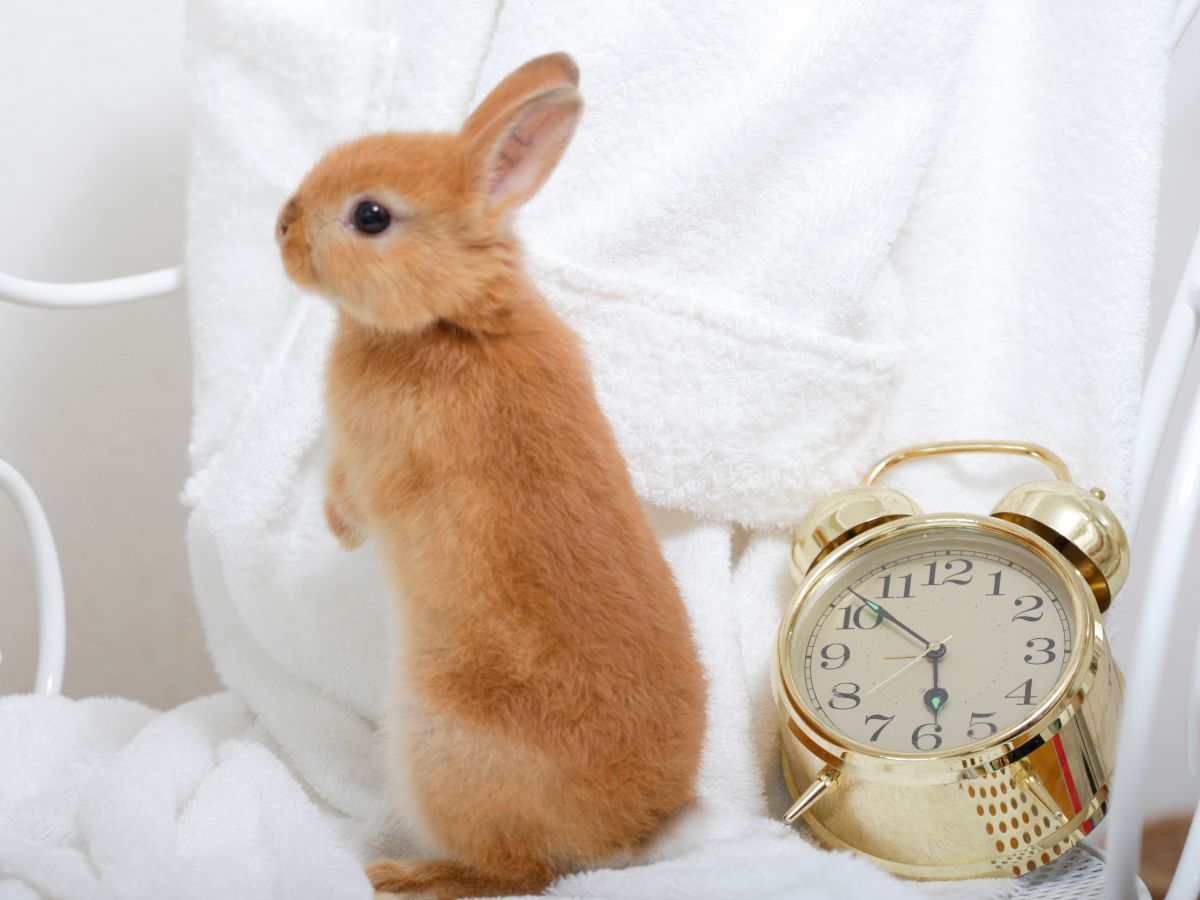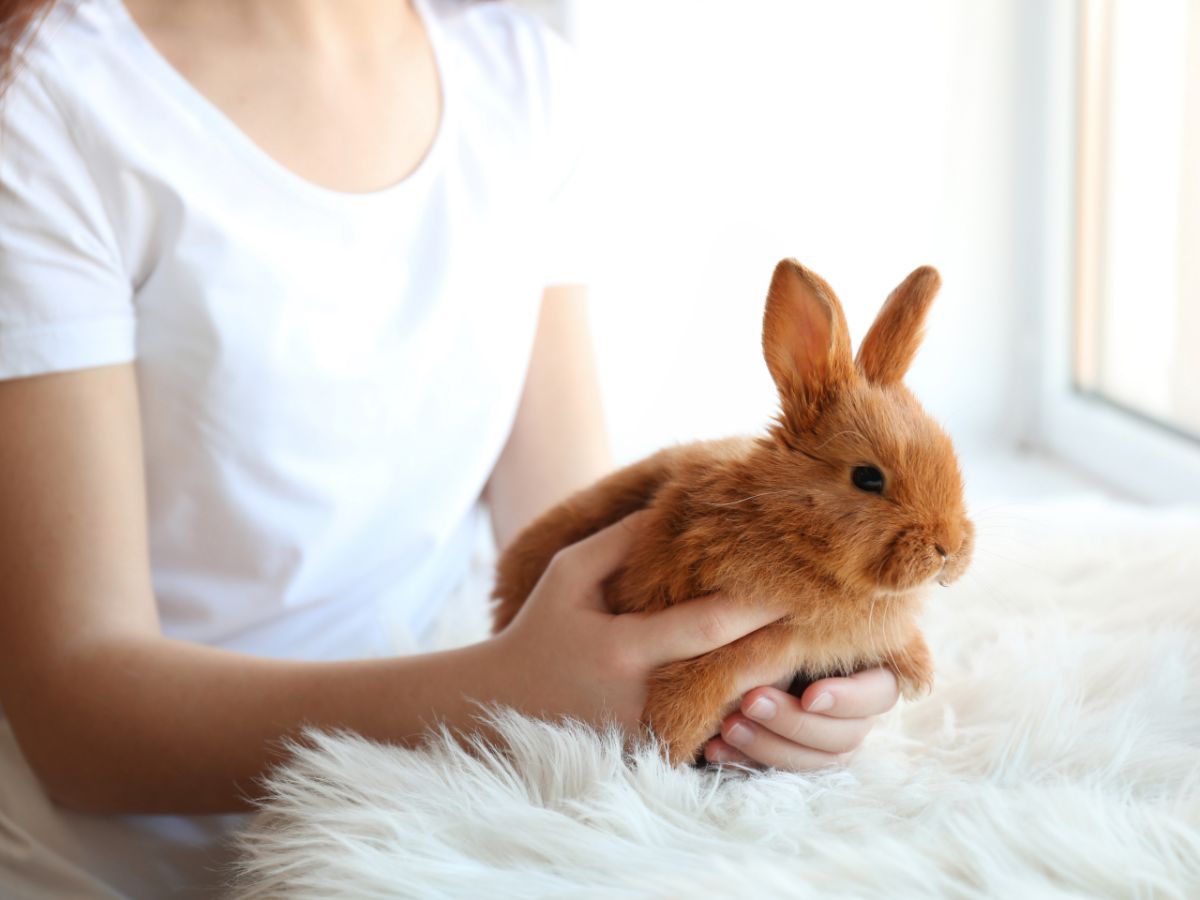Many individuals will cringe at the site when they see an animal eating their own fecal matter. Why do many animals, including rabbits, do this? Is it unhealthy, and should you stop them? Let’s find out.
Rabbits eat their poop, known as cecotropes, to absorb additional nutrients into the body that their digestive system was unable to break down when the food was initially eaten. This poop is made through the process of Hindgut Fermentation, and eating it is called Coprophagia.
This article will outline and explain precisely why rabbits eat their poop. It will cover everything from what type of poop rabbits produce, why they don’t eat some of it, when they eat it, how their body makes it, and more. If you are concerned that this may be unhealthy for your rabbit or you are just curious to find out why then read on.
Contents
Why Do Rabbits Eat Their Poop?
Although the practice of an animal eating its own feces for most is thought of as unhealthy and somewhat disgusting, rabbits will do so for a very good reason. Essentially, rabbits will eat their own poop to absorb additional vitamins and nutrients that their body did not digest from their regular diet.
This practice of eating poop is a quite normal and healthy behavior that rabbits and other rodents, lagomorphs, piglets, foals, and dogs perform. This process (practice) is known as Coprophagia.
What Is Coprophagia In Animals?
Coprophagia is the term used whereby an animal will eat its excrement and other animal feces. Animals who exhibit this behavior typically have high metabolisms with small intestines (in this case, rabbits).
Due to the fact that these small intestines are not able to process all the nutrients from food when it is initially ingested, the nutrients exit the body in the form of feces which these animals ingest a second time round in order for these nutrients and vitamins to be fully absorbed.
Do Rabbits Eat All Their Poop?
Although rabbits will eat their poop, they will not eat all of it. This is because rabbits actually excrete two different types of fecal matter. The first type is the one (and most likely only poop) you will come across and see: hard little black round pellets.
These pellets are fecal matter that contains no additional nutrients and vitamins. This means that the rabbit’s body could process and break down its food correctly, absorbing everything it needed to, and this excrement is what is leftover. This type of poop a rabbit will not eat because it does not need to (there are no nutrients in it); hence, it is the type of poop you will find lying around.
The second type of poop is known as cecotropes. This poop is softer, and you usually will not find it anywhere due to the fact that a rabbit will consume it immediately upon exiting the body.
Why Are Cecotropes Different From Normal Rabbit Poop?
This fecal matter is different from regular feces due to it being broken down into simple sugars. Through reverse peristalsis, and a process called Hindgut Fermentation, a rabbit will ingest its food where it will pass through its digestive tract (esophagus, stomach, and small intestines), where the initial process of absorbing nutrients will prove to be ineffective.
The matter will then move to the colon, but then reverse peristalsis will force it back into the cecum. At this point, the matter will be broken down into simple sugars (easier for the body to break down) and will be passed out of the body, which the animal will then reingest.
When Will A Rabbit Eat Its Poop?
The process of producing cecotropes usually occurs 4 to 8 hours after eating. Due to this, rabbits will typically produce this type of fecal matter at night, hence why cecotropes are also commonly known as “night feces.”.
Furthermore, due to the fact that rabbits will eat this feces immediately as it exits the body, it will be done at night or in the early hours of the morning.
How To Check That A Rabbit Is Eating Its Poop?
It should be noted that eating its own poop for a rabbit is normal and healthy behavior; if it is not, it is most likely sick. As such, it is a good idea to check that your rabbit is indeed eating its cecotropes.
There are a handful of ways to check if your rabbit is indeed doing this and is healthy. The first is simple enough. You can check the area of droppings (the floor cage or litter box) to see if any poop is soft and sticky. If you find only hard pellets, then that’s perfect.
The next is to check the bottom of your rabbit. Since a rabbit re-ingests its poop immediately, its rear will usually be clean if they are constantly doing this. If you find that there is small sticky poop stuck to the fur around the bottom of your rabbit, then you know they are not eating their cecotropes.
Lastly, you can watch your rabbits in the evening and early morning to see that they are grooming themselves correctly and licking themselves below their tail.
Should You Stop A Rabbit From Eating Poop?
You should never stop your rabbit from eating its poop because this Is a natural and healthy process for it. As stated, one of the only times it will not eat its poop is because it is probably sick. Another reason they may not eat their poop (cecotropes) is that they may be too arthritic or obese to do so.
It will help if you remember that Coprophagia includes the eating of other animal feces. This means that rabbits may eat the feces of other rabbits.
This process is known as transfaunation, and this occurs when a rabbit with an unhealthy intestinal tract tries to reestablish it by eating other rabbit’s poop.
Conclusion
We discovered that rabbits eat their poop because they have to do so. This process is natural, normal, and healthy; all rabbits must do it to maintain their health. They do it because their poop contains vitamins and nutrients that were not able to be absorbed through the digestive system when their food initially passed through it.
Due to the process of Hindgut Fermentation, food that was not sufficiently broken down into nutrients is broken down into simple sugars and passed out of the body, whereby the rabbit can re-ingest it. The nutrients are then absorbed into the body this second time around.




